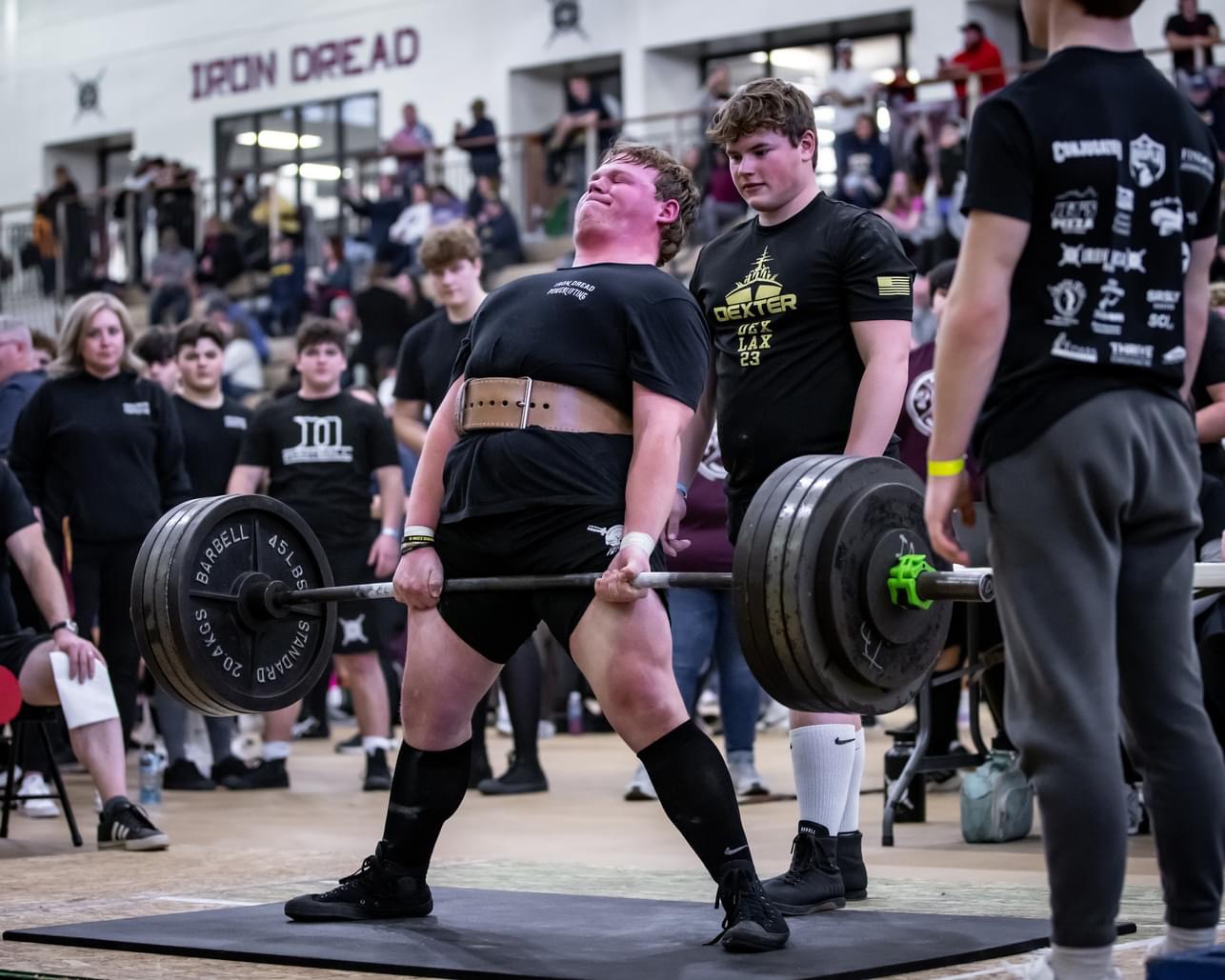With about 900 students being involved in the DHS’ weight room, the Iron Dread Strength and Conditioning program is growing in popularity and strength as its legacy continues on
By: Heidi Fuchs & Addison Streetman
2017, the year that the Iron Dread Strength and Conditioning program was established, twelve students were enrolled in the first Strength and Conditioning course. This was a time where Dexter athletics were in a slump, including the football team. Dexter had gone 0-9 for three straight seasons, was the worst team in the area, and arguably the worst in the state of Michigan. Varsity football Head Coach Phil Jacobs was hired in the spring of 2017, bringing his knowledge and expertise to rebuild the DHS football program and to teach a lifting class. Shortly after, Coach Chris Whittaker was hired to help create a strength program for the entirety of Dexter High School.
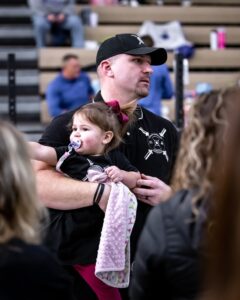
“[It] was a dark and scary time,” mentioned Coach Whitaker when discussing the unsuccessful football losing streak. Originally, the creation of the strength program was to draw in more boys to play football and reconstruct their athletic ability. Then, the program became much more; it has elevated into a program accessible to all DHS students and is heavily encouraged for our other athletic programs across the school.
In January 2018, the use of the conjugate system became the main focus of Iron Dread, and it’s still used within the program today. This form of lifting uses specialty bars such as the Yoke bar, Buffalo bar, American Bar, and the Fat bar. Each bar targets a different weak point in students’ bodies. It helps build strength in areas that aren’t usually worked on and
can even minimize injury.
Now, according to Whittaker, there are about 900 students utilizing the weight room and its perks each week. This is working towards his goal of wanting “to be an integral part of every athletic team.” Expansion would be the next big step within the Iron Dread strength and conditioning program. Adding onto Dexter High School or building an addition specifically for the weight room has already been discussed within district leadership. The project would cost millions of dollars, but it would allow more kids to train at one time.
This would lead to all students involved in the program training during school hours and moving away from the before and after-school training sessions. “I would love to have it where we don’t have to have kids come in before or after school,” Whittaker said.
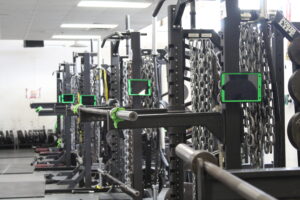
Hyper and multifunctional racks. The use of new technology includes I-Pads and the TeamBuildr app to monitor student’s progress in the program.
Another change that could be made in the near future would be the hiring of another strength coach. The program needs someone “that’s going to be here with me in the afternoons in the mornings so that there’s just more supervision,” said Coach Whittaker, “[So] there’s more feedback going out to the kids in the room.”
Leo Mitchell, also known as the Tribal Chief, is one of the many captains of the
Powerlifting team. He spoke on behalf of being a leader in the program, stating that he enjoys encouraging the younger members of Iron Dread.
“I encourage [others] to do their best no matter if they fail or not,” he said, “… you can build yourself back up. I push them to do things they’re previously not capable of.”
Mitchell noted that he feels as though he has grown as a leader throughout this program. “I’ve become a better leader because I’ve been able to teach the younger kids in the program what not to do and what to do, and that has helped my leadership abilities.” His main takeaway from being involved in Iron Dread: “Always try your best no matter what.” In his final meet of the season, Regionals, he placed 2nd in his weight class.
Another captain of the Powerlifting team is Lana Burns. At this year’s regional powerlifting meet, Burns set a new school record. For deadlift, Lana impressively lifted 330 pounds, and was first place in her weight class. To be this successful in powerlifting, she remains incredibly active within the program and goes almost every morning to lift. “The biggest lesson I’ve
learned is just keep believing in yourself and keep working hard because this is a very personal and mental sport. It has definitely made my mental health stronger and the confidence in myself better.”
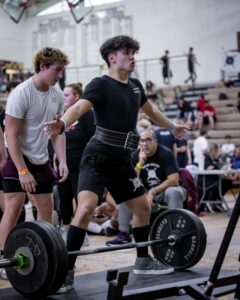
Another piece of advice she wants to give to people in the program is “don’t give up.” Consistency, she believes, is key, and that the feeling after all her hard work of a successful and productive workout is worth it. She claims that through this program, she has become a better athlete. Powerlifting has been vital for her as a volleyball player and has helped her jump above the net.
“From sophomore year to junior year, my vertical has increased by six inches,” she said. Burns has grown so much as an athlete through this program, but she has grown even more as a leader.
“I’m always there, so people really look up to me,” Burns continued. “People started coming up to me and asking me questions, and I was like, ‘Oh, I like helping people and teaching them how to do things that I’m good at.’”
For Coach Whittaker, both Mitchell and Burns are just examples of what he hopes to see in all future Dexter athletes.
“I want to keep getting people stronger,” Coach Whittaker explained, “We want to keep helping people have success and we want to win games and win championships. That’s what we want to do.”
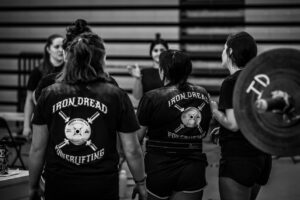
their success.

